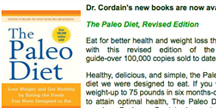CrossFit 864 WOD - 5:15a.m./9:00a.m.
“Yes, God's riches are very great, and his wisdom and knowledge have no end! No one can explain the things God decides or understand his ways.”
-Romans 11:33
If you find a path with no obstacles, it probably doesn’t go anywhere.
-Unknown
WOD (a) starts as a group - please be on time.
Jump rope - 25 DU's (double unders)
15 Air squats
15 Push-ups
15 light kettlebell swings
Hold squat stretch for a minimum of 1 minute
Samson Stretch (2 x 20 seconds) each side
Hang from pull-up bar for one minute
WOD (b) = 2 - 7 minute parts
AMRAP - 7 minutes:
10 Push-ups (CF Hand release)
15 Lateral hops - over PVC
10 Ball slams (40-50/25-30)
Rest 1 minute
AMRAP - 7 minutes:
10 One arm kettlebell swings (5 each side)
15 Kettlebell figure 8's
10 One arm kettlebell push press (5 each side)
Use the same kettlebell for the 3 movements. Goal is to not drop kettlebell for the entire 7 minutes.
Train Hard - Train Smart
A few of the many benefits of Fish Oil
Fish oil, made from the tissue of oily fish-such as salmon, tuna, mackerel, herring, lake trout and sardines-has many health benefits. Fish oil contains important Omega-3 fatty acids , most notably eicosapentaenoic acid (EPA) and decosahexaenoic acid (DHA). These Omega-3 fatty acids are believed to have health benefits ranging from reducing the risk of heart attack and coronary heart disease to combating depression.
Heart Problems
The intake of the recommended amount of DHA and EPA has been shown to have many heart healthy benefits. Consumption of dietary fish or fish oil supplements can lower triglycerides-a certain type of blood fat-and increase "good" cholesterol, while slightly thinning the blood. All of these factors help reduce the risk of heart attack. Fish oil also helps to prevent dangerous abnormal heart rhythms that can cause sudden cardiac death, and strokes in people with known cardiovascular disease. In addition to the numerous benefits already mentioned for the heart, fish oil can also slow the hardening of arteries and slightly lower blood pressure-two more important factors of heart health
Inflammation
Omega-3 fatty acids are not only good for the heart; they also help to reduce inflammation. This is perhaps one of the most valuable benefits of the Omega-3 fatty acids found in fish oil, as inflammation is associated with many serious diseases. Heart disease, cancer, autoimmune diseases, psoriasis, and Alzheimer's, for example, are characterized by increased levels of pro-inflammatory markers. Omega-3 fatty acids from fish oil reduce inflammation by preventing production of pro-inflammatory signaling molecules. This may help to prevent serious illness associated with inflammation.
Arthritis
The ability of fish oil to reduce inflammation is not only good for preventing serious illnesses, such as heart disease and cancer. Fish oil is also effective in reducing the symptoms and pain of arthritis. Morning stiffness and joint tenderness was shown to decrease with regular intake of fish oil supplements. Fish oil does not act as a painkiller, and it takes regular use before a difference is noticed. However, fish oil is a viable, natural way to reduce the pain and symptoms associated with arthritis if one is dedicated to the long term outcome rather than focused on immediate cessation of symptoms
Fish oil Omega-3 fatty acids and our bodies
Omega-3 fatty acids found in fish oil are extremely important to the overall health of our minds and bodies. For that reason, it is important to understand how our bodies obtain these important fatty acids. The human body cannot make Omega-3 fatty acids, and therefore is dependent on outside sources for the essential fatty acids. In all circumstances where these fatty acids are believed to be medically beneficial, we must get it through either food (i.e. eating the recommended 2 servings of fish per week) or through a fish oil supplement.
Fish oil supplements, quality and how fish oil is manufactured
If a fish oil supplement is used to obtain the essential Omega-3 fatty acids, it is important to know how to determine the quality of the fish oil. However, in order to determine the quality, one must first understand exactly how fish oil is manufactured. First, the oily fish enters a processing plant and is cut into pieces. These pieces are then cooked with steam. The cooked fish is then pressed to separate the fat free solid from the liquid, which consists of oil and water. The fat free solid is processed into fish meal, which is commonly used in animal feed, while the liquid is further processed to separate the water from the oil. The separated water has solids in it and is added back into the fish meal to be used in animal feed, while the separated oil is further processed to remove impurities. Finally, anti-oxidants are added to the fish oil and the finished oil is placed in steel storage containers. Thus, fish oil is created.
With an understanding of the manufacturing process, one can more easily determine the quality of the fish oil, as the quality depends on the type of fish used and the purity standards followed when refining the oil. Salmon, tuna, sardines and anchovies are the richest sources of Omega-3 fatty acids, therefore making fish oil made from these fish the most desirable. In order to assess the purity standards followed during the refining of the fish oil, contacting the company that manufactures the fish oil is the best option. When contacting the company, a request for documentation of product verification by a third party laboratory should be requested. A company that is responsible, has done their homework, and has received good marks from third party verification should be happy to provide this information.
Another indication of quality is the ratio of EPA and DHA per capsule. Many manufacturers include the milligrams of fish oil on their labels. However, less than one third of that number is actually the essential Omega-3 fatty acids. In order to determine the quality of the fish oil and Omega-3s then, the amounts of EPA and DHA per serving must be added. For example, a fish oil capsule that is 1,000 mg fish oil may contain 200 mg of EPA and 150 mg of DHA, meaning the capsule provides 350 mg of Omega-3 fatty acids.
Here are a few simple rules to follow in order to choose the highest quality fish oil supplement:
- The fish oil must contain Omega-3 fatty acids, not just "fish oil." Remember, it is from the Omega-3 fatty acids that we receive health benefits.
- The supplement should list the total amount of EPA and DHA on the label. You want to get a supplement where the total of the EPA and DHA adds up to the total amount of oils in the product. If there is only 350 mg of Omega-3 fatty acids but the capsule is 1,000 mg, what kind of oil makes up the missing 650 mg? The closer to the overall capsule size, the better.
- The oil should be pressed only from the flesh of the fish. Some supplements are pressed from heads, tails, or internal organs. You wouldn't eat these parts on a fish if you were obtaining your Omega-3 fatty acids via the food source. Thus, you shouldn't want a supplement made out of the inedible parts of the fish either.
- The fish used for the oil should be health screened and disease free. This means the manufacturer needs to know where their fish is coming from and must assess the fish before including them in their processing plant.
- The fish oil should not have been molecularly distilled. Molecularly distilling oxidizes and alters the natural form of the oil. Sometimes the oil is molecularly distilled to remove toxins. However, the fish should not have been contaminated in the first place and so should not have required molecular distillation. If the fish in the supplement required molecular distillation, you have to ask how polluted the fish oil was before the distillation and decide if you really want to put that low quality of fish oil in your body.
In addition to label checking to ensure quality, product contamination affects the quality level of fish oil supplements, and is a common concern. A particular concern is the presence of polychlorinated biphenyls (PCBs), dioxins and heavy metals such as mercury. It is common knowledge that fish contains mercury and mercury in high levels is detrimental to health. However, recent studies failed to find detectable levels of mercury in products of fish oil that were analyzed. Additionally, significant levels of PCBs and dioxins were not found either. It is believed that mercury was not found in detectable levels because most mercury in fish is concentrated in the meat, rather than the oil. Another reason for the undetectable levels of mercury is the distillation process that the fish oil supplements undergo. This process removes contaminants, such as heavy metals and other toxins. Therefore, while product contamination is a legitimate concern, it is not one that needs to be considered too deeply.
Another important factor regarding the quality, and safety, of fish oil is whether or not the fish oil is rancid. This is a legitimate concern and one that is increasingly worrisome. Tests in 2009 showed that an alarming number of sampled fish oil capsules contained "oxidative byproducts," which indicate that the fish oil is degrading and becoming rancid. While fish oil that is not rancid promotes heart health and numerous other health benefits, rancid fish oil has the opposite effect, actually promoting heart disease and other chronic illnesses. The reason rancid fish oil is such a concern is because fish oil begins to oxidize as soon as it is extracted from the fish. The oil then begins to go rancid within days, though the majority of labeled fish oil supplements indicates that the capsules are good for three to four years. Further, because the oil is enclosed in capsules, consumers are not able to tell whether or not the fish oil is rancid. Fortunately, there is a solution to the issue of rancid fish oil. Fortifying fish oil with anti-oxidants, especially vitamin E, prevents oxidation. It is imperative then that manufacturers use the most effective form of vitamin E-gamma and delta-rather than the less effective (and less expensive) alpha tocopherol.
Knowing that it is highly possible for fish oil capsules purchased to go rancid very quickly, it is imperative that you ascertain the quality and safety of the fish oil that you purchase. There are some easy and effective ways to do this. Testing your fish oil capsules is an effective measure of whether or not they rancid. Bite into the capsule. It should taste fresh and slightly fishy. If it tastes bad or has an extremely fishy taste, it is rancid. Throw the entire bottle away and do not buy that brand again. To increase your odds of receiving capsules that are not rancid, check the label closely and choose a brand that uses d-gamma and d-delta forms of tocopherols (vitamin E). These help to prevent oxidation and rancidity, so brands using these more expensive forms of vitamin E are more likely to be good when you bite into that capsule to check. Do not buy the cheapest brand of fish oil. It might sound more appealing to pay a few dollars less, but it isn't worth it in the long run. If the brand is significantly less than other brands, chances are it uses the lesser quality vitamin E and does not adequately prevent against oxidation and rancidity.
To emphasize how important this is we will state this again - it is imperative never to take fish oil supplements that are rancid. The purpose of the fish oil is to better your general health and help prevent serious illness. Consuming rancid fish oil will do just the opposite.
Fish oil dosage and medical advice
Varying opinions and recommendations regarding the proper dosage of fish oil makes it essential that medical advice is sought before determining and beginning any dosage, but particularly any dosage above the FDA's recommendation of 3,000 mg daily. Additionally, due to the blood thinning effect of fish oil supplements, anyone with a chronic blood disorder should consult a medical doctor before taking ANY dosage of fish oil.
Eating fish as a source of Omega-3 fatty acids
For general health it is recommended that two 3-ounce servings of fish are eaten per week. However, it is important to note that it is difficult to get an adequate dose of fish oil, high in Omega-3 fatty acids, from food alone. Therefore, supplements such as capsules and chewable tablets are necessary. It sometimes occurs that someone is unable to take the capsules or chewable tablets for various reasons.
Hope that your week is going well. Share an encouraging word with someone today.
Happiness is an attitude. We either make ourselves miserable, or happy and strong. The amount of work is the same.
-Francesca Reigler
BE STRONG!
Jay and Janice
Subscribe to:
Post Comments (Atom)


























No comments:
Post a Comment